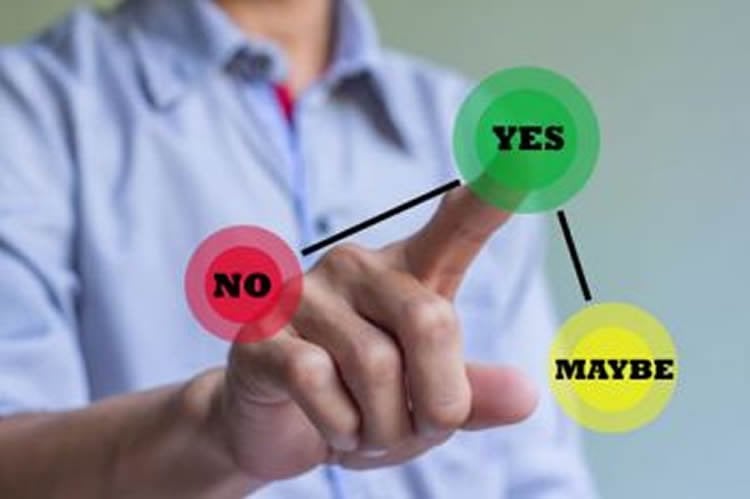Research finds that interactive video games improved general decision-making abilities in short and long term.
Research on decision-making bias found that interactive training exercises using video games actually improved participants’ general decision-making abilities and when used alongside other traditional training methods. The implication being that such training could reduce costly errors associated with biased judgments and decisions.
The paper, published in Policy Insights in the Behavioral and Brain Sciences, explored ways to improve upon traditional methods of training designed to reduce bias and improve people’s decision-making ability.
Dr. Irene Scopelliti from Cass Business School (who previously worked on the psychology of bragging on social media), was part of the research team who developed two interactive computer games to test whether they might substantially reduce game players’ susceptibility to cognitive biases.
Most efforts to debias people have focused on two approaches. The first involves changes in the incentives that influence a decision. For example, increasing the cost of cigarettes to dissuade people from purchasing them. The second approach involves changing the way information on the different choice options is presented, in order to make the best options easier to choose.
Dr Scopelliti said, “Whereas these methods only affect specific decisions, and do not change the decision-makers’ ability to make less biased decisions in other unrelated situations, the interactive games we tested can extend their effects to different contexts because they affect the decision-maker rather than a specific decision.
“We found that playing the interactive games reduced susceptibility to biases by more than 31% in immediate tests, and that two to three months after participants played the games, the reduction in the incidence of bias was still larger than 23%.”
The interactive games provided participants with personalized feedback about how biased they were during game play, with the opportunity to make practice decision, and to learn strategies to reduce their propensity to commit each of six well-known cognitive biases:
- Bias blind spot – seeing oneself as less susceptible to biases than other people
- Confirmation bias – collecting and evaluating evidence in ways that confirm one’s preconceptions
- Fundamental attribution error – unduly attributing someone’s behaviour to their individual traits and personality rather than to situational factors
- Anchoring – relying too heavily on the first piece of information available when making a judgment
- Projection – assuming that other people think or behave the same way we do
- Representativeness – relying on some simple and often misleading rules when estimating the probability of uncertain events
The team measured how much each participant committed the specific biases before and after playing the game or watching a video explaining the occurrence of the same biases. In each experiment, the computer game was more effective than the video at mitigating bias. The first experiment demonstrated that playing the game reduced three biases (bias blind spot, confirmation bias, and fundamental attribution error) by about 46% immediately and 35% over the long term. Watching the video only reduced the three biases by about 19% immediately and 20% over the long term.

The second experiment, addressing three additional biases (anchoring, projection, and representativeness), demonstrated that the game was more effective than the video, with the game reducing the three biases by about 32% immediately and 24% over the long term. Watching the video reduced the biases by about 25% immediately and 19% over the long term.
Source: City University London
Image Source: The image is adapted from the City University London press release.
Original Research: Abstract for “Debiasing Decisions: Improved Decision Making With a Single Training Intervention” by Carey K. Morewedge, Haewon Yoon, Irene Scopelliti, Carl W. Symborski, James H. Korris, and Karim S. Kassam in Policy Insights from the Behavioral and Brain Sciences. Published online October 2015 doi:10.1177/2372732215600886
Abstract
Debiasing Decisions: Improved Decision Making With a Single Training Intervention
From failures of intelligence analysis to misguided beliefs about vaccinations, biased judgment and decision making contributes to problems in policy, business, medicine, law, education, and private life. Early attempts to reduce decision biases with training met with little success, leading scientists and policy makers to focus on debiasing by using incentives and changes in the presentation and elicitation of decisions. We report the results of two longitudinal experiments that found medium to large effects of one-shot debiasing training interventions. Participants received a single training intervention, played a computer game or watched an instructional video, which addressed biases critical to intelligence analysis (in Experiment 1: bias blind spot, confirmation bias, and fundamental attribution error; in Experiment 2: anchoring, representativeness, and social projection). Both kinds of interventions produced medium to large debiasing effects immediately (games ≥ −31.94% and videos ≥ −18.60%) that persisted at least 2 months later (games ≥ −23.57% and videos ≥ −19.20%). Games that provided personalized feedback and practice produced larger effects than did videos. Debiasing effects were domain general: bias reduction occurred across problems in different contexts, and problem formats that were taught and not taught in the interventions. The results suggest that a single training intervention can improve decision making. We suggest its use alongside improved incentives, information presentation, and nudges to reduce costly errors associated with biased judgments and decisions.
“Debiasing Decisions: Improved Decision Making With a Single Training Intervention” by Carey K. Morewedge, Haewon Yoon, Irene Scopelliti, Carl W. Symborski, James H. Korris, and Karim S. Kassam in Policy Insights from the Behavioral and Brain Sciences. Published online October 2015 doi:10.1177/2372732215600886






